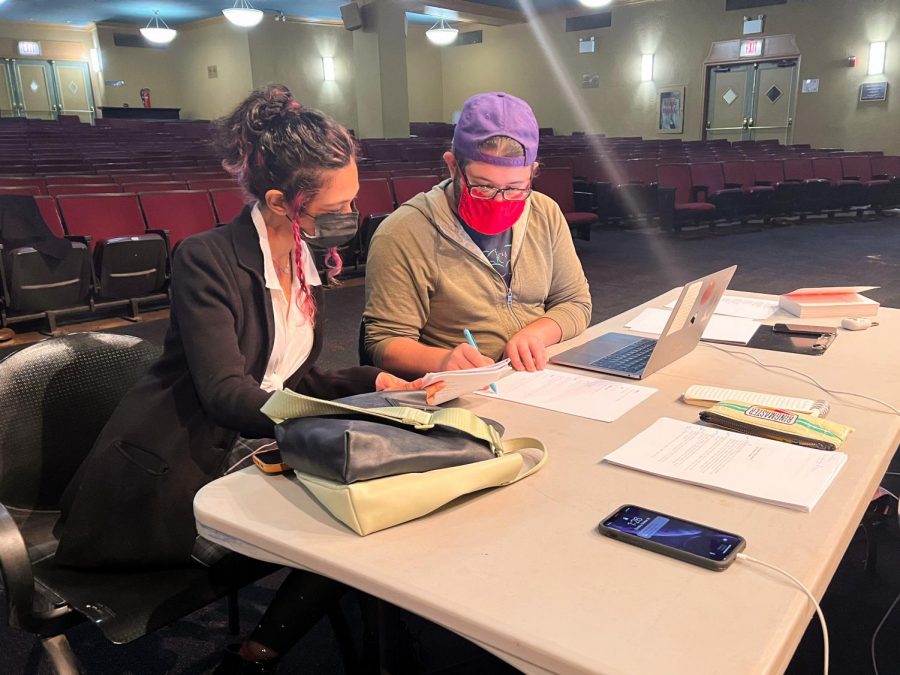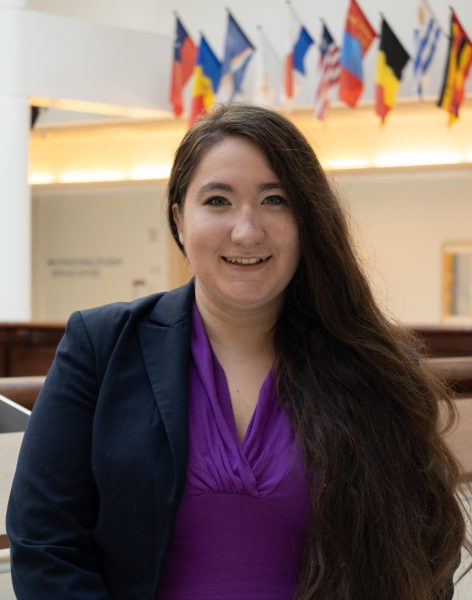Baruch’s ‘And Then There Was Us’ shines a spotlight on its students’ voices
December 3, 2021
Every person lives their own story, experiences their own trials and triumphs, undergoes their own moments of transformation and realization. “And Then There Was Us” is a series of snapshots from different life stories, and through its charismatic characters, relatable plots and literal placement of the audience on stage, it is inviting its viewers into the moments the characters are living through.
The production is at once timeless and timely, and director Christopher Scott masterfully threads the four individual students’ stories into one overarching narrative about the challenges young adults face.
From the moment the lights come up, the audience is struck by the powerful visual of each actor standing illuminated and side-by-side. Although diverse, with each speaking lines from their own individual stories, the characters are united in experiencing the emotions common to all people.
Baruch student Ursula Hansbury is an original music contributor and performer throughout the production. Short stories themselves, her songs are strategically placed to connect each vignette. Guitar in hand, Hansbury sings with the same magic that makes the production resonate: the kind of earnest rawness you can’t help but connect with and believe.
In between each story, there are also monologues that further illustrate the themes of the production by directly engaging the audience. Thomas Ellenson powerfully performs “Just Like You,” written by Sable Gravesandy, and “All That Was Left,” written by Nkiruka J. In addition, Nicole Nelson performs her self-written witty monologue “Rants.”
The writers of the production don’t shy away from heavy topics, instead executing them in a way that neither diminishes the gravitas of the issue nor weighs on the sharp and quick-paced dialogues that propel the production forward. In several instances throughout the production, humor is used to both balance and punctuate the heart wrenching moments of the story.
Throughout the production, characters experience epiphanies.
In “The Talented Normal” for example, a character discovers their bisexuality. Characters also realize that everyone paints pictures of a person in a way that lets them sleep at night but doesn’t necessarily reflect the truth.
In “The Man on the Ferry,” the characters realize that everyone is living their own lives and experiencing shared struggles, even the people that are written off as crazy. Meanwhile in “Greetings from Beyond: A Love Letter from Home,” even death cannot stop the characters’ epiphanies as they reflect on the loves of their lives.
In “Daddio,” established life narratives are challenged, and past pain is confronted.
Through an exploration of the various lives portrayed in “And Then There Was Us,” the audience is taken on a journey of self-discovery that extends past the boundaries of stage and theatre and into the reality of everyday life.








